EPP Summit, 20 October 2022 © eppofficial/albums
The title for this article is an old Turkish proverb, but it seems to fit quite well. Building Europe together sounds like an excellent idea, with different peoples and nations bringing their own unique perspectives to the project, all together in harmony for the greater good of all and with shared aims and beliefs. You’ve probably spotted the flaw in this concept already. After the Second World War many Europeans were trying to come up with a way forward that would preclude the possibility of another war. Various ideas were put forward, but it was clear that the means to conduct a war involved a great deal of energy and steel. Without them there could be no weapons, no means of propulsion for military vehicles, no shell cases for explosive materials, so no effective way to wage a war. Without supplies of fuel and steel it’s so difficult to kill people, as our ancient ancestors discovered.
It was the French government that proposed bringing the production of coal and steel in both France and Germany under a single system of control, the so-called High Authority. Their aim was not, of course, mass slaughter but its avoidance. The proposal was put forward by Robert Schuman, a French politician born in Clausen, a suburb of the city of Luxembourg, in 1886 and holding German citizenship through his father, although he also became a German citizen when Lorraine was annexed by Germany in 1871. During the Second World War, he objected to German methods of rule and was arrested and interrogated by the Gestapo, but a German lawyer won him his freedom before he could be transferred to Dachau concentration camp, as the authorities had intended. His experiences undoubtedly influenced his political views. He was already a Christian Democrat, a political philosophy he retained throughout his life. He wanted peace and, presumably, to avoid further confrontations with bodies like the Gestapo.
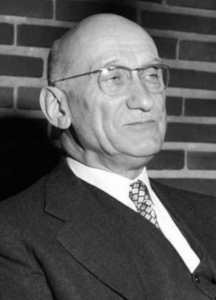
The High Authority would eventually turn into the European Commission and its task was to achieve, in the words of the Jean Monnet Foundation’s “L’Europe: Une Longue Marche” – and in the shortest possible time – “the modernisation of production and the improvement of its quality; the supply of coal and steel on identical terms to the French and German markets as well as to the markets of other member countries; the joint development of exports to other countries; the equalisation and improvement of the living conditions of workers in these industries.” Christian Democracies originate in Roman Catholicism and support the ideas of social and economic justice, recognising the need for occasional state intervention to support some communities and to defend human dignity. In its purest form it cannot be said to be either “left” or “right”, but with its belief in private property and its opposition to state intervention in social life and education, it is normally (and accurately) viewed as being right-wing, if only moderately so. It has become more secular over the course of time. Christian Democrat parties have led coalition governments in Germany, France, Belgium, Italy, Austria, the Netherlands, and Luxembourg. They gained influence in Central and Eastern Europe after the fall of the Berlin Wall and the collapse of the USSR.
It clearly isn’t necessary to be a Roman Catholic or a follower of any religion to be a Christian Democrat. Indeed, some Christian Democrat parties actively sought the support of agnostics and even atheists as the movement developed. At the bottom of it, of course, is the Christian Democrat belief in the right to the ownership of private property and a dislike of outside intervention, however official, in people’s day-to-day lives. Founded only in 1976 through its change of name to the European People’s Party (EPP), it is now the largest political grouping in the European Parliament, the European Council and also the European Commission, whose President, Ursula von der Leyen is a member. It includes not only Christian-democratic but also conservative and Liberal-conservative member parties and others from the centre-right of politics. It even describes itself now on its own website as “the family of the political centre-right”.
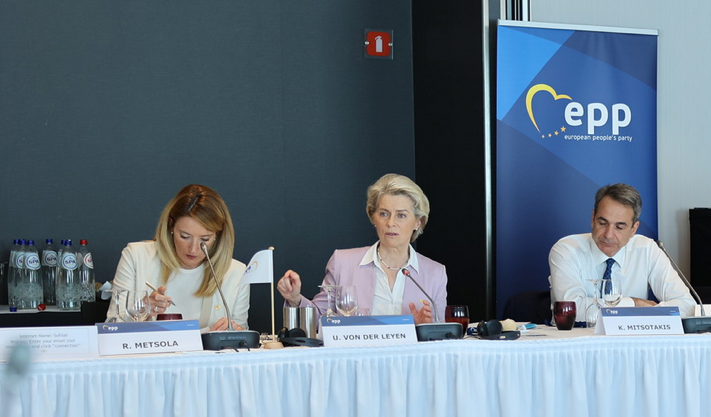
The EPP was founded in Luxembourg on 8 July 1976 on the initiative of Jean Seitlinger, Leo Tindemans, who was the Prime Minister of Belgium at the time and who went on to become the first President of the EPP, and Wilfried Martens, who later became both President of the EPP and, like Tindemans, Prime Minister of Belgium. Its predecessor had been the Secretariat International des partis démocratiques d’inspiration chrétienne, which had been founded in 1925. Next came the Nouvelles Equipes Internationales, founded in either 1946 or 1948 (no-one seems quite clear on that point) and then in 1965 the European Union of Christian Democrats was established: yet another step along the road, but only a step. It was not until the late 1990s that Finnish politician Sauli Niinistö negotiated the merger of the European Democrat Union (EDU), of which he was president, with the EPP. In October 2002 the EDU ceased to exist as a separate body after being formally absorbed by the EPP at an event in Estoril, Portugal. In recognition of his efforts, Niinistö was elected Honorary President of the EPP the same year.
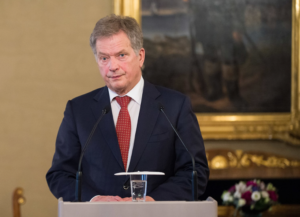
FACING INTO DARKNESS?
The overall aims of the EPP are set out on its website. “The EPP political family has been to the fore of efforts to make Europe a safer place,” it states. Of course, being part of a single political movement doesn’t mean everyone is in total agreement about everything. Even in a large monastery with, perhaps, a thousand monks, it’s been said that if you ask them all of them what exactly it is they believe you would end up with a thousand different versions of the same faith. Only slightly different in some cases but massively varying in others. Even so, they would probably agree on general principles. The EPP may embrace a variety of approaches to a single issue but its members will be in widespread agreement about it being an issue. So let’s take a look at its other published aims: “It is the foremost duty of public authorities to protect their citizens and to uphold the rule of law in our societies.” I don’t think many people would argue with that as a laudable goal. The website continues: “Our work is mainly focused on four areas: securing our external borders, preventing illegal migration, fighting terrorism and combatting organised crime and corruption. In these areas, strengthening the rule of law, good law enforcement, strong intelligence services, effective exchange of information and a strong and resilient civil society, firmly rooted in the core values of the Union, are a precondition to preserving and enhancing the security we live in.”
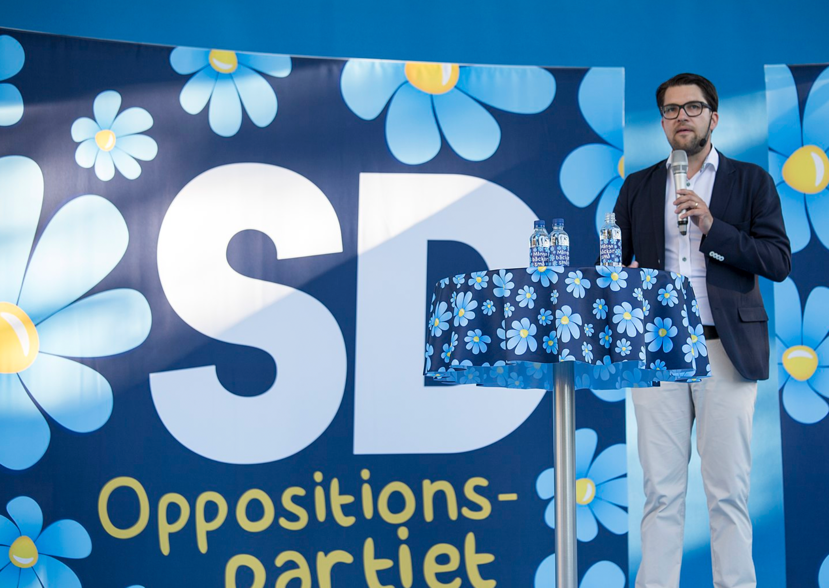
The EPP does face a big problem, however, in terms of how to address various issues. Never mind the differences among a few monks: this would tax the wisest abbot to find a workable solution. Look, for instance, at the recent Swedish elections. The centre-right won a tiny majority – 176 seats out of 350 in parliament, compared with 174 for the left-leaning Social Democrats, while the far-right Sweden Democrat party (SD) surprised people by picking up more than one in five of the votes cast. The success of the SD was down to the concentration during the campaign on such issues as immigration and violent crime. Originally founded by Nazi sympathisers, the party has been largely kept out of national politics. Members are said to be anti-immigration, nationalist and against multiculturalism, but the party has tried to distance itself from the traditional racism with which it was associated.
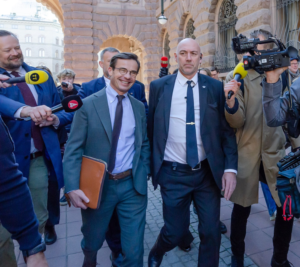
Its leader, Jimmie Åkesson suspended the party’s entire youth wing in 2015 because of its links with the far-right. It has even dropped its “Keep Sweden Swedish” slogan. Some party officials have publicly called for the repatriation of certain Middle-Eastern migrants, apparently with Åkesson’s support. Sweden, it’s claimed, has experienced the highest per-capita number of asylum seekers in the world. After the results of the election were announced, Åkesson said: “Now work begins to make Sweden good again.” Sweden’s Moderates, who sit with the EPP in the European Parliament, lost votes, perhaps because the group’s leader, Ulf Kristersson, collaborated with the far right during the campaigning and the signs are that he may now collaborate with them in the Riksdag, Sweden’s parliament, a possibility flagged up by Swedish Left party MEP Malin Björk, who has been critical of the Moderates for displaying a willingness to cooperate with extremists.
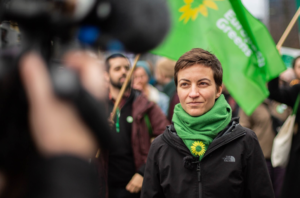
Åkesson has said on Swedish radio that he finds it hard to choose between the policies of Emmanuel Macron and Vladimir Putin. It’s an issue also raised by Green MEP Ska Keller. In a letter to Commission president Ursula von der Leyen she wrote: “what will it mean for the EU’s climate policy to be dependent on climate deniers?” From the tone of the email there is genuine concern there. “What will it mean for the EU’s policy on democracy and the rule of law,” she asks, “that the government of the country holding the EU presidency relies on a bunch of people who, on a straightforward question , cannot choose between Macron and Putin?”
Åkesson also doubts the reality of climate change, despite the mounting scientific evidence. I think it’s probably fair to say that not too many voters in Western Europe would be unable to spot the differences between the policies of Macron and Putin so perhaps Åkesson was merely exaggerating to make a point. Putin is out on his own, seemingly wanting to rule the world. As it is, it’s expected that the Moderates, Liberals and Christian Democrats will form enough of a loose alliance to run a government, albeit with the occasional collaboration of the far-right, who join them on certain issues, like immigration (of course), integration and the budget. The Moderates’ willingness to collaborate with the SD is thought to have cost them votes. Add to this the departure from the EPP of its Hungarian membership: Hungarian prime minister Viktor Orbán led his ruling Fidesz party out of the EPP, albeit only just before the party was expelled anyway. The Fidesz decision followed a change in the rules of the EPP (overwhelmingly agreed) which would have allowed the suspension or expulsion of the party, a move Orbán described as “antidemocratic, unjust and unacceptable.” In other words anyone who doesn’t share Orbán’s far-right policies is not a democrat and may face discrimination and isolation. He sought to exclude anyone who didn’t share his extreme views, but the expulsion from the largest political caucus in the European Parliament has weakened Fidesz in terms of committee chairmanships and lobbying power. Orbán had accused the EPP of being antidemocratic, yet firmly believed his group could adopt any policies it wished, despite the disapproval of the much larger caucus. Others before him have tried similar tactics, but with only varying degrees of success.
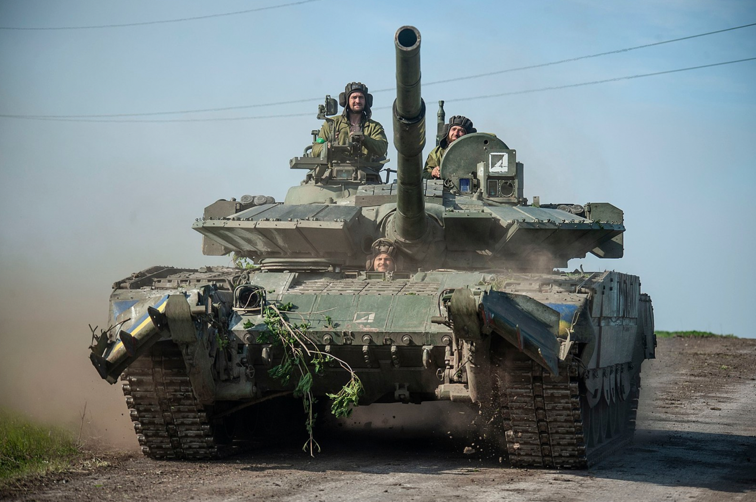
Of course, Europe changed a lot when Putin decided to re-invent himself as Adolf Hitler, seizing neighbouring independent countries and calling them his own. As we all know, he hit on Ukraine and excused his brutal, unprovoked aggression by claiming that the independent country was run by Nazis and that the Ukrainian people must be set free. The first Russian soldiers who crossed the border were surprised to find that, despite what Putin had said about them being welcomed as ‘liberators’, they were in reality most unwelcome, with little old ladies lying down in front of their military vehicles to force them to stop and to shout at them to keep them out. Politicians and the wider public are well aware that this will not be a short conflict, despite Ukrainian successes in resisting the Russians and driving them back. Furthermore, if Putin is ultimately defeated he will almost certainly ensure that his forces leave no infrastructure intact for the Ukrainians to enjoy or build upon.
ANYONE WANT A COW?
Putin is an extremely ruthless and brutal man. Take the case of Sergei Pugachev, at one time a powerful figure in Moscow’s corridors of power. He met with Catherine Belton, author of the terrifying but excellent book “Putin’s People” in his Chelsea home in London, the day after he had sought the protection of the UK’s counter-terrorism service. His bodyguards had spotted what seemed to be bombs underneath his Rolls Royce and – significantly – also under the vehicle used to transport his children (aged 7, 5 and 3) to school. You’re never too young to escape Putin’s murderous barbarity, it seems. If you ever eat with him, be sure to use extra-large utensils. As the old saying goes, “Marry, he must have a long spoon that must eat with the Devil”.
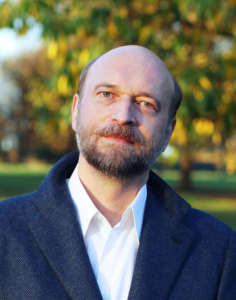
That quote is from Shakespeare’s The Comedy of Errors, although the phrase originally came from Geoffrey Chaucer’s 14th century The Squire’s Tale:
“It well behooves him take a lengthy spoon
Who eats with Devils,’ so I’ve heard folk say.”
And there can be no serious doubt that Putin qualifies as a devil in human form. Pugachev had used his skills to help Putin on his way to power, but that didn’t save him from being framed for a bank scam because it saved Putin from being held to account. It’s never safe to be a friend to Putin; he has no sense of loyalty and doesn’t appear to understand friendship. Or truth, for that matter, or honesty. Those now helping him in various ways must watch carefully to check if they still have his support. He is a most unreliable ally.
The EPP has described Putin’s invasion as an international crime which “dramatically altered the geopolitical reality of Europe”. The group wants to step up the pain being inflicted on Russia by increasing the sanctions that have already been applied. Holding a fake referendum at the barrel of a gun, then accusing the country being invaded on doing the invading because you’ve decided the land is now yours would be seen as an amusing joke, if anyone other than a psychopath like Putin was doing it. He is deadly serious; literally deadly serious.
The EPP also sees it as Europe’s duty to protect its borders against illegal immigration. It may seem an odd thing to get excited about; it’s a very different approach to that of Barrack Obama, who said: “My fellow Americans, we are and always will be a nation of immigrants. We were strangers once, too.” What a very civilised and understanding approach; if only more leading politicians thought that way… The former President of the United States clearly hoped to encourage a more welcoming attitude to those who had travelled some distance – and often at some expense and at considerable risk – in the hope of a better present day and a more promising future for themselves and their children.

However, in the United States – as well as here in Europe – many people get very cross at the idea of people from other countries trying to settle in their homeland, even though all of us had ancestors who came once in a very distant past from a long way away. But politicians must bow to popular belief if they’re to succeed. That’s one reason why the EPP likes to emphasize its work in preventing people from trying to emigrate to Europe in an unofficial manner.
On its website, the EPP stresses that it effectively protects Europe’s external borders as a precondition to: “securing our citizens and the trust in our Union. It is also a precondition to ensure borderless travel within the Schengen area. This is why we will make sure that no one can enter European Union territory without the knowledge and explicit approval of our authorities.” In case that sounds a little harsh, there is an additional rider: “At the same time, we assume our Christian and humanitarian responsibility to help those in need and to improve living conditions in their home countries.” It looks, at first glance, rather like trying to back a horse “both ways”, as the betting fraternity would put it (it means you still get some winnings – albeit not as much – if the horse comes in second or third). Alternatively, an “on-the-nose” bet, betting that one horse will win, pays the most if it comes in first. Showing friendship and sympathy to newcomers doesn’t count as anything other than a vague hope that they’ll contribute to the workforce and thus eventually to the wealth of everybody. That’s not a concept that’s likely to be expressed by the SD, perhaps.
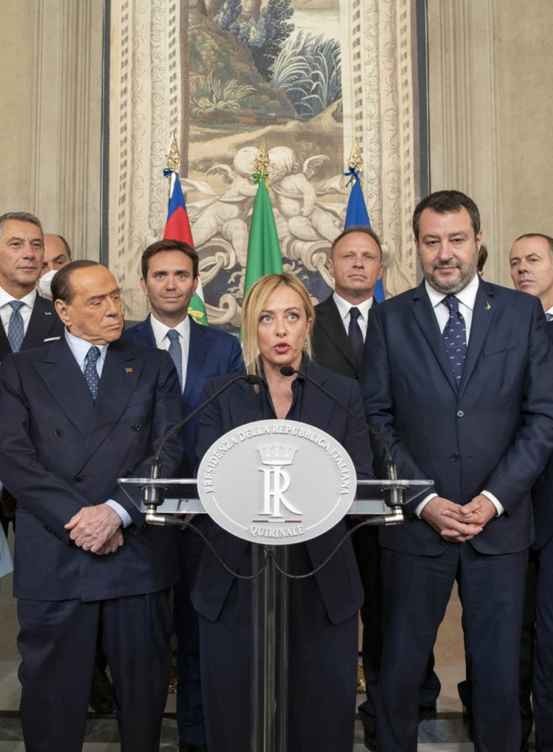
PICK A SIDE, ANY SIDE…
Meanwhile, the EPP is under pressure to expel Silvio Berlusconi and his supposedly centre-right Forza Italia group over his apparent support for Giorgia Meloni, Italy’s newly-elected Prime Minister and leader of the far right, although given the man’s reputation for wiliness, he may have just opted to give the lead horse a push rather than fall out of the saddle altogether. Furthermore, he has a well-publicised weakness for attractive young women, which could have influenced his attitude. In any case, Berlusconi has been supporting the idea of aiding Meloni’s bid to run the government (as Italy’s first female Prime Minister), much to the annoyance (and fear?) of other, more regular supporters of the EPP. Now some German MEPs have written to Manfred Weber, as head of the EPP, to expel Berlusconi and his party. They want nothing to do with Meloni, nor with her Brothers of Italy far-right party. Berlusconi has been photographed snuggling up to her, but it’s something he’s inclined to do with attractive women anyway, regardless of their politics.
Are we witnessing here the resurgence of the Far Right in European politics? Is it just a case of “out with the old, let’s try something new”? Or are people really flirting once again with Fascism and Fascist ideas, just like people did back in the 1940s? Or is this just a case of slipping from the sublime to the ridiculous? After all, Muhoozi Kainerugaba, a Ugandan general and son of the country’s President, the remarkably long-lasting Yoweri Museveni, has offered Meloni one hundred cows if she’ll marry him. She should think very seriously about such an offer.
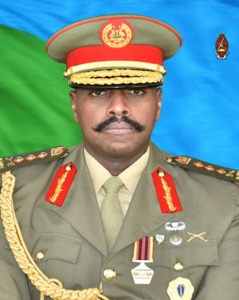
I once interviewed Museveni for a long time in the beautiful gardens of the presidential palace and we got on very well. He seemed a most civilised man and very charming. I liked him. He came over to greet me when we almost bumped into each other inside the European Parliament in Strasbourg a few weeks later and we had a pleasant and very informal chat. No cows were involved but I really liked Uganda and Museveni. Maybe I should retire there. Still, offering cows in return for a country’s newly-elected leader may not have been the most diplomatic move to make. The cows in question are, according to Kainerugaba, of the Ankole breed, which are native to that part of Africa; Kainerugaba pointed out that “in our culture you give a girl a cow”. Where I come from boys bought girls drinks, not cows. They didn’t fit comfortably in a car or on a bus. Museveni has apologised on-line for his son’s somewhat tactless approach, but maybe Meloni should think about it. Museveni has ruled Uganda, if not without occasional controversy, since January 1986. European leaders tend not to stay in power for as long. And Nkore cows are extremely handsome, with long, thick, curved horns. It would be interesting to take one for a walk through the streets of Rome. No mugger would dare come near you.
However, cows cannot form political parties and who can tell if they’d support the EPP, anyway? Would they be more likely to support the Greens? I’m inclined to think they’d demand access to grass and edible foliage. Cows at least provide an interesting distraction from the reality of the far right returning to power. It’s a very long time since the Second World War, of course, and people either die or forget. Thirty years ago, there was widespread optimism as Europeans set aside their fears and embraced the notion of more open societies, with open markets, and a more united Europe. Surveys today suggest a growing fear among the public about people’s political and economic realities. Do their political systems function normally? Research by the Pew Research Centre finds that most people living in the former Eastern Bloc approve the changes they’ve witnessed – but not always wholeheartedly. Many people still worry about the future, especially when it comes to equality and their political systems. For instance, ask people if they believe their elected officials care what they think, the results are, perhaps, surprisingly negative. In France, for example, 76% believe they don’t care what electors think. It’s 48% in Poland, 68% in Italy, and a surprising 84% in Greece, while the doubters reach 58% in Russia and 80% in Ukraine, although the survey was conducted before Putin’s invasion.
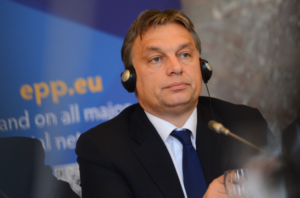
A majority, at least, view EU membership as having been a good thing. By and large, views seem largely positive, but there’s not much cause for jubilation.
It’s almost certainly true to say that there is no system of governance that gets overwhelming approval. “Better than nothing” would seem to be the most common verdict. Asked what impact EU membership has had on their country’s economy, an average approval rating reached just 56%, with lower figures for France (42%), Greece (35%), Bulgaria (25%) and – surprisingly – founder-member Italy, (just 22%). Whether this scepticism would lead to countries quitting the bloc or not, given such an option, is hard to judge. Britain did, of course, and there are no signs that the economy is booming as a result. Perhaps we should all just close our borders and order a herd of cattle from Muhoozi Kainerugaba. It may not bring much economic satisfaction, but at least we won’t be short of milk.

